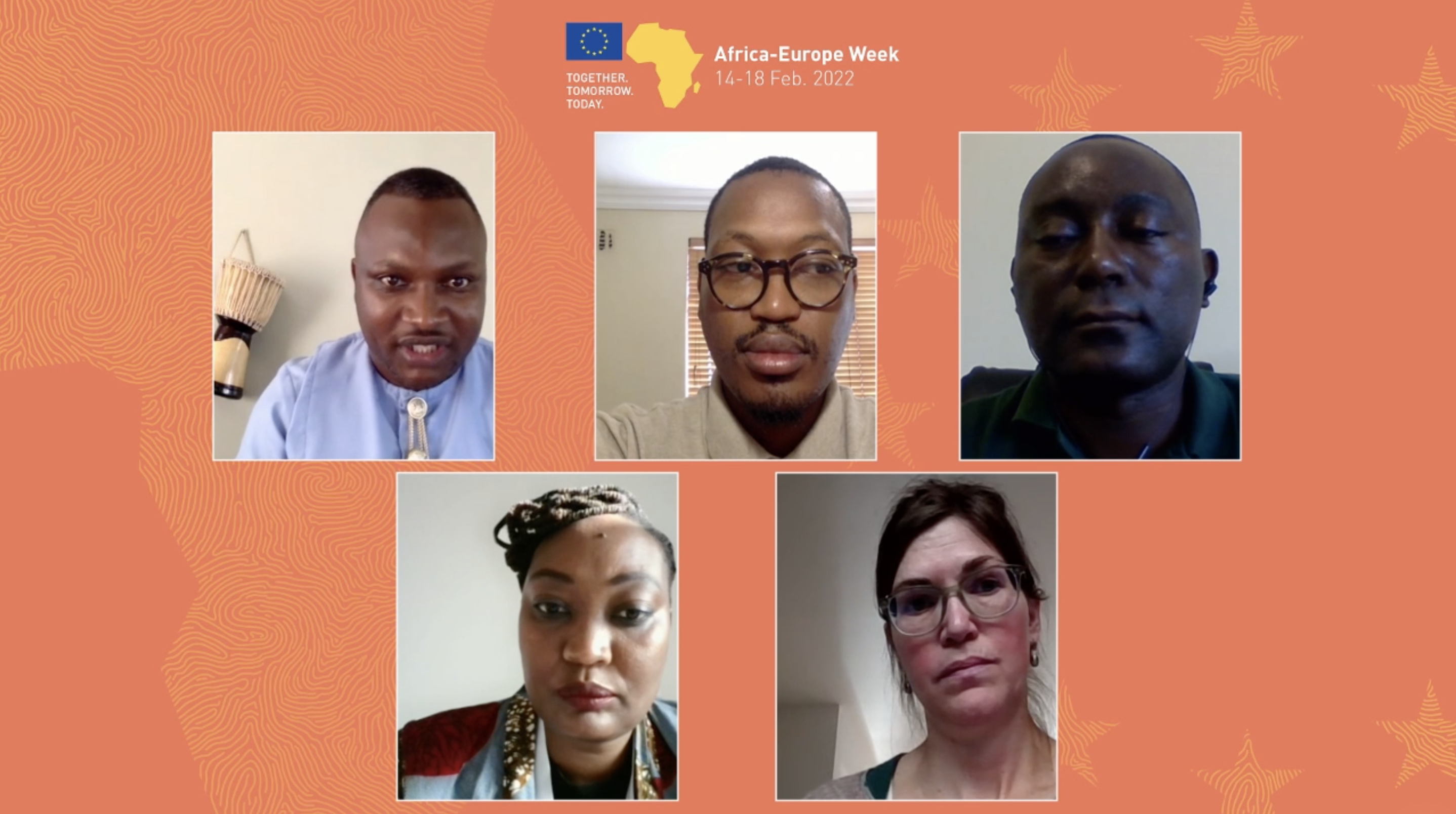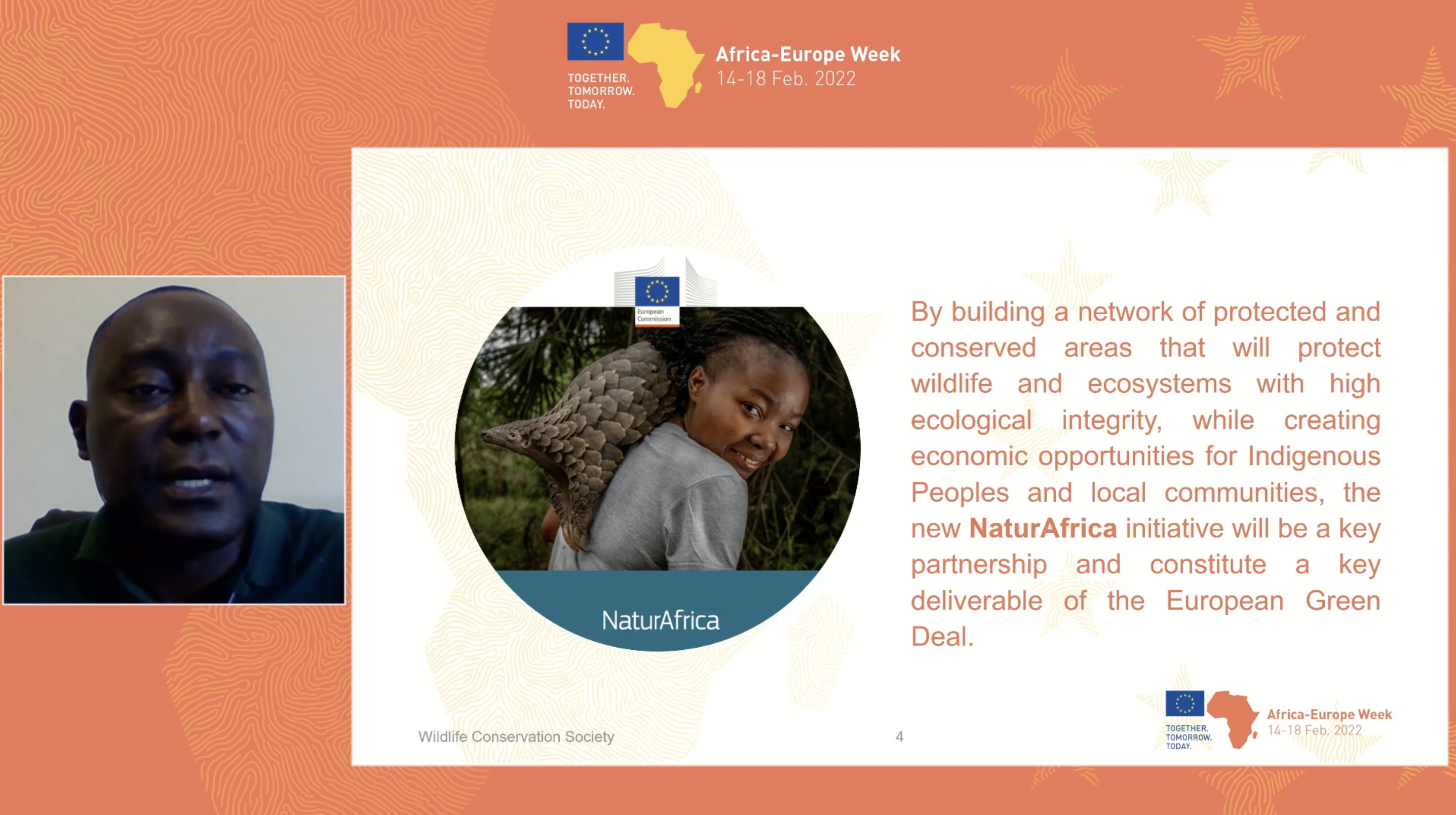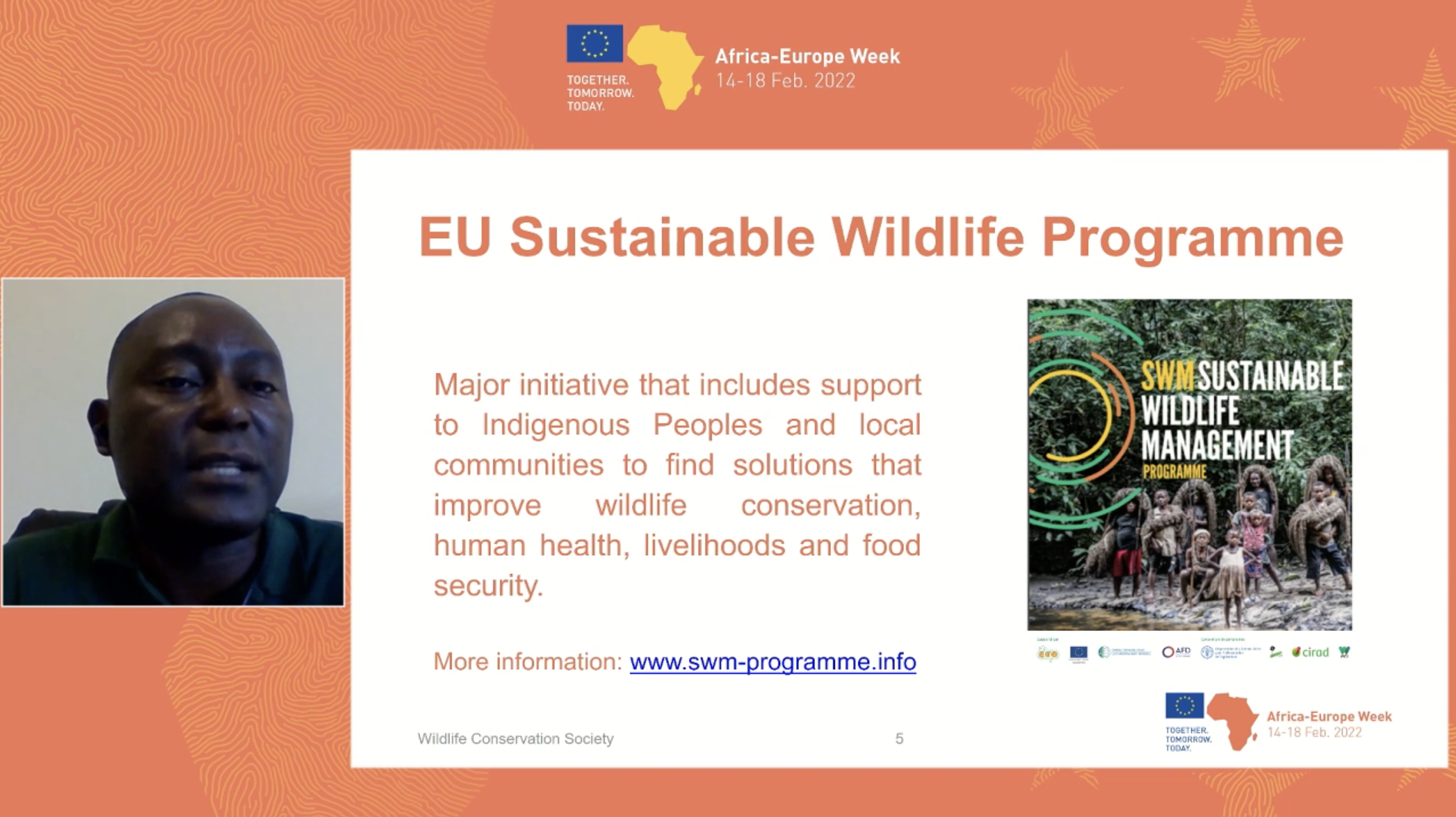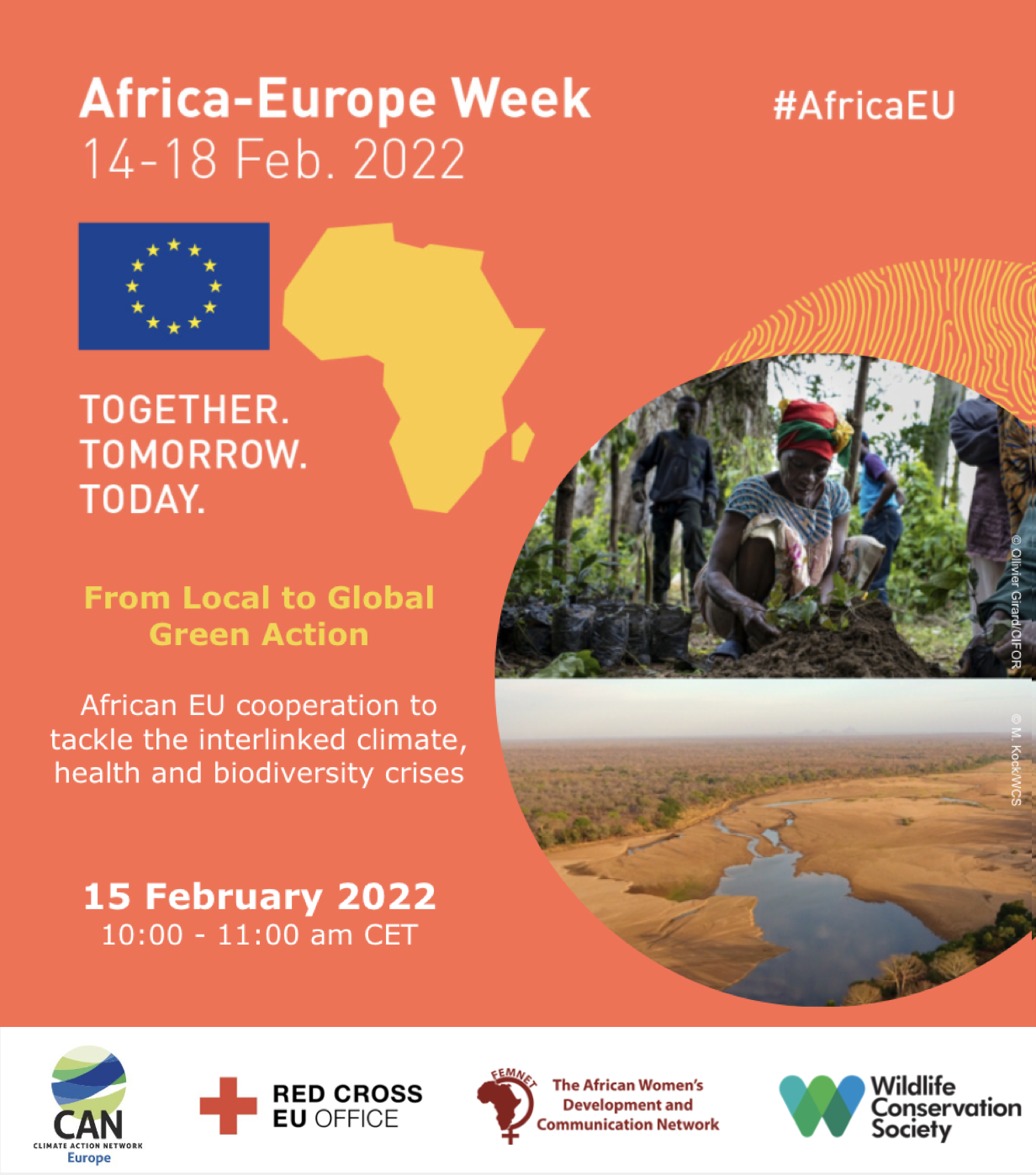
From Local to Global Green Action: African EU cooperation to tackle the interlinked climate, health and biodiversity crises
European Union and African Union leaders met in Brussels for the 6th European Union - African Union summit on 17 and 18 February 2022. In the run-up to the summit, the first edition of the Africa-Europe week took place, a key moment that brought together young people, civil society and the private sector from Africa and Europe to discuss the aspects of the Africa-EU Partnership that matter to them the most. The Africa-Europe week took place from 14 to 18 February 2022 and aimed to strengthen the links that connect people from both our continents.
The Wildlife Conservation Society (WCS), CAN Europe, Red Cross EU, and the African Womens Communication and Developmnet Network (FEMNET) co-organised an event on 15 February 2022 titled 'From Local to Global Green Action: African EU cooperation to tackle the interlinked climate, health and biodiversity crises'. This session explored how the EU Africa partnership should support African countries to implement ambitious and just climate and biodiversity actions and lead to stronger alliances for success at the international negotiations on climate, health, and biodiversity. It covered COP15 in China, COP27 in Africa, financing, and addressing climate and biodiversity loss impacts on health. It also highlighted the role of CSOs, Indigenous Peoples and local communities for stakeholder participation and governance.
The full video recording is availble here.
Moderator
- Mr. Shaban Mawanda - Red Cross Red Crescent Climate Center
Speakers
- Mr. Thandolwethu Lukuko - Coordinator South Africa Climate Action Network
- Mr. Gaspard Abitsi - Country Program Director, WCS Gabon
- Ms. Memory Kachambwa - Executive Director, African Women's Communication and Development Network - FEMNET
- Ms. Sophie Aujean - Senior Advocacy Adviser, WaterAid

Mr. Shaban Mawanda, Red Cross Red Crescent Climate Center, introduced the session and moderated the discussion. He briefly contextualised the global processes as well as EU and AU contexts related to climate, health and biodiversity (post COP26, COP27, CBD COP15, European Green Deal, African Union Agenda 2063, and WHO launching a treaty on pandemic preparedness) and highlighted the importance of local engagement to contribute effectively to these discussions.
Mr. Thandolwethu Lukuko, Coordinator South Africa Climate Action Network, discussed how to bring local and civil society's climate action to the global context, in particular in the context of COP27 which will be the first one to be held in Africa, priority issues for COP27 including adaptation and loss and damage, and how the EU and African Union can support CSOs.
Mr. Gaspard Abitsi, WCS Gabon Country Program Director, discussed international biodiversity negotiations and their relationship to the AU-EU partnership, NaturAfrica, interlinkages between climate change, biodiversity loss, and pandemics. He stressed that there can be no solution to the climate and pandemic crises without also combating the biodiversity crisis while improving livelihoods of indigenous and local communities. The EU and Africa therefore need to strengthen their partnership to address the root causes of these three major and interlinked crises the world is currently facing. It is urgent to find win-win solutions to get out of these crises.
Mr. Abitsi noted the importance to protect oceans and forests with high ecological integrity, which will not only contribute to biodiversity protection but will also help mitigate climate change by reducing carbon levels in the atmosphere while helping to reduce risks of future pandemics of zoonotic origin by shrinking the human-wildlife interface.

A specific area in which this Africa-EU partnership can deliver is the long-term investments in protected and conserved areas. By building a network of protected and conserved areas that will protect wildlife and ecosystems with high ecological integrity both in marine and terrestrial areas, while creating economic opportunities for Indigenous Peoples and local communities, the new NaturAfrica initiative will be a key EU-AU partnership and constitute a key deliverable of the European Green Deal.

Increased support is needed to scale-up locally-produced, sustainable non-wildlife high quality, nutritious food, to enhance food security and reduce dependence on wild meat, particular for city dwellers, as one of a number of One Health approaches. The EU is already leading efforts in this area through the seven year Sustainable Wildlife Management (SWM) Programme, funded by the EU and the Organisation of African, Caribbean and Pacific States (OACPS). SWM is developing innovative, collaborative, and scalable new models to conserve wildlife and improve food security for IPLCs. SWM is being implemented by the FAO, CIFOR, CIRAD, and WCS.
Ms. Memory Kachamba, FEMNET Executive Director, addressed specific consideration for appropriate gender, women rights’ organisations, indigenous peoples and grassroots organisations engagement in climate, health and biodiversity action.
Ms. Sophie Aujean, WaterAid Senior Advocacy Adviser, discussed considerations from an EU perspective on opportunities for the future Africa-EU partnership to address the climate, health and biodiversity crises focusing on adaptation, water and health.
